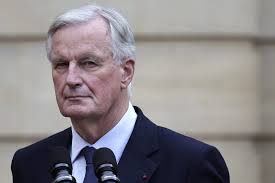UK may need to tax the wealthy or target inheritances to close £20 billion deficit left by previous government

London: UK Chancellor of the Exchequer Rachel Reeves could push through over £20 billion ($26 billion) of tax hikes at the upcoming budget without breaking any election pledges by targeting inheritances and capital gains, according to the Resolution Foundation.
Reeves is under pressure to plug what she claims is a £22 billion fiscal hole left by the previous Conservative government. However, her hands are tied by Labour manifesto promises not to raise a number of big revenue-raising taxes, including income tax and VAT.
In a report published Tuesday, the Resolution Foundation identified a range a tax rises, many of them targeting wealth, that Labour could not only do, but also meet its principle that the costs fall on those with “the broadest shoulders.”
It came as separate analysis by Boston Consulting Group revealed a potential £19.5 billion prize from slashing long-term sickness, and the House of Lords Economic Affairs Committee sounded the alarm over the “unsustainable” state of the public finances.
The three reports laid bare the challenges facing Reeves at her first budget on Oct. 30, as she attempts to put borrowing back on track and calm anger from Labour lawmakers over spending cuts.
The pressures will come to a head on Tuesday when the House of Commons votes on plans to remove winter fuel subsidies from all but the poorest pensioners. Prime Minister Keir Starmer is hoping an inflation-busting increase in the state pension, set to be confirmed earlier in the day, will head off a potential rebellion.
“The Labour manifesto included £10 billion of tax rises, but fresh ones will be needed in order for Rachel Reeves to sufficiently fund public services and investment while still hitting her fiscal rules,” said Adam Corlett, principal economist at the Resolution Foundation.
Inheritance tax reforms that remove business and agricultural reliefs and subject pension pots to the levy would raise £2 billion, the think tank found. Aligning capital gains tax on shares with dividend tax rates and taxing property gains like wages, while reintroducing inflation-indexing, would raise up to £12 billion. Another £9 billion could be found by ending national insurance relief on staff pension contributions by employers.
The think tank said that new governments have raised on average £21 billion in tax in their first budgets after being elected. The government needs around £19 billion a year of extra spending to avoid real-terms per head cuts to unprotected departments like justice and transport.
The BCG analysis found that the government could save £20 billion a year by 2029 by bringing back 450,000 of the workers who dropped out of the labor force due to long-term sickness. This would help generate higher tax revenues and shrink a ballooning benefits bill. Boosting worker participation among this group could also increase UK GDP by up to £177 billion, or 3%, by 2029, it said.
Britain has been uniquely hit by a near 700,000 rise in sick workers leaving the labor market since the pandemic struck, worsening staff shortages and holding back economic growth. On Tuesday, Work and Pensions Secretary Liz Kendall said the surge in inactive workers is the “greatest employment challenge for a generation,” as she launched a new panel of experts to advise the government on the crisis.
“When you’re thinking about things that move the dial on the Office for Budget Responsibility and on their forecast, this is one of the big things,” said Raoul Ruparel, director of BCG’s centre for growth. “If you can actually convince them that you can get these people back in the workforce, it would make a meaningful difference to the fiscal forecast.”
The House of Lords Economic Affairs Committee said that Britain’s debt pile is at risk of becoming “unsustainable” unless Reeves takes corrective action in the coming years.
It urged Reeves to toughen up her debt target, which requires debt to be falling as a share of GDP in five years, and highlighted mounting pressures from interest rates, military spending, an aging population and the climate transition. It also warned ministers that high immigration cannot ease the country’s debt bind.
“Unless difficult decisions are taken in this parliament, there’s a risk — and I stress a risk — that the UK debt may become unsustainable,” said George Bridges, who chairs the committee in Parliament’s upper chamber.
“Our concern is the trajectory and the lack of a fiscal buffer to help us withstand economic shocks,” he said. “If we want to continue to deliver the state to deliver the level and quality of services we want, taxes will need to rise or the state will need to do less.”
